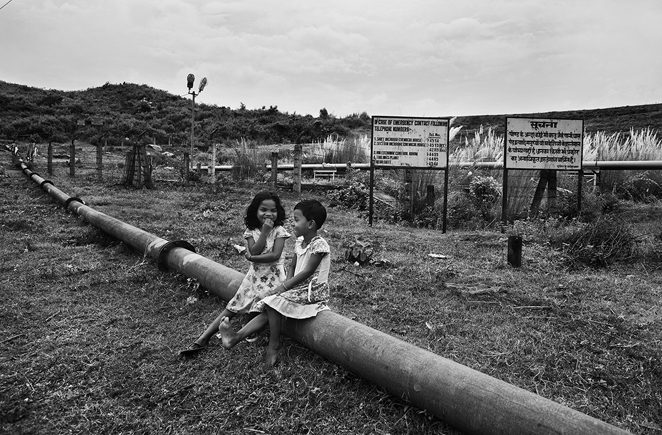Jadugoda mines in Jharkhand can be India's Chernobyl
Jadugoda mines in the Purbi Singhbhum district of Jharkhand are India's first Uranium mines

Credits: DiaNuke.org
As fascinating the name is, Jadugoda mines maintained by the Uranium Corporation of India Ltd.(UCIL) have contributed to the destruction of the livelihood of the nearby villages. These mines which contribute up to 25% of the raw materials to fuel India’s nuclear reactors are the havoc makers in the closeby areas.
What is the controversy around the Jadugoda mines?
Jadugoda mines were first found out in the mid-1950s and since the 1960s have been under the control of the UCIL. In the coming years, as more Uranium supplies were dug out, the waste which was produced in the process was dumped in the man-made Tailing Ponds.
Read: Sacred Grove Of Adivasis Drowning In Nuclear Waste
Tailing Ponds were built near the already existing villages. The residue which was liquid, solid, and sometimes gaseous was disposed of in these ponds. These ponds are within 20-30 meters of the villages of Tilaitand, Chatikocha, Pajharkorcha, and Dungridh.
Damages to the villages and villagers
In the 1980s, the first tailing pond had developed cracks in it. These cracks allowed the flow of residue into nearby water bodies and as a result, contaminated the primary source of the villagers.
For decades, people in the nearby villages had contracted diseases and deformities (some from birth). Though the UCIL denied the involvement of their activities in the diseases and deformities, a report by the Bihar Government Legislative Council (Jharkhand was a part of Bihar then) in 1998 blamed several UCIL activities for causing the spread of diseases and deformities.
Credits: Ashish Birulee
Read: Jadugoda Fallout
Jharkhand Organisation Against Radiation in the year 2000 did a survey in a few villages. The result of the survey was as follows:
- 52 Men & 34 Women had deformities
- 9 children died within a year of birth and 8 of them had congenital deformities
Credits: Ashish Birulee
Villagers who had raised their voices against the mismanagement of the UCIL plant had been charged with fictitious charges. Arjun Samad, an activist was charged with murder and other charges.
Read: Nuclear Waste dumped in the Ponds near Village
Dumku Murmu of the Jharkhand Organisation Against Radiation says that those who have raised their voices have been called upon as Traitors, Anti-nationals, and even Pakistanis.
As latest as 2006, a leak in Dungridih near the UCIL plant led to the death of hundreds of fishes in the nearby water bodies. A pipe that carried waste started to leak and this caused the flow of radioactive materials.
What has the Media done about this?
With little to no coverage, the media has utterly failed in raising this issue among the masses. Villagers have often pointed the finger at UCIL for hiding the media's attention on the Jadugoda mines, but the news channels and newspapers have turned a blind eye to this too.
As the UCIL plant started to operate again in 2018, this time with more care and prevention, the lack of desired media coverage has shunned the voices of the villagers.




This is heart renching :(
ReplyDelete